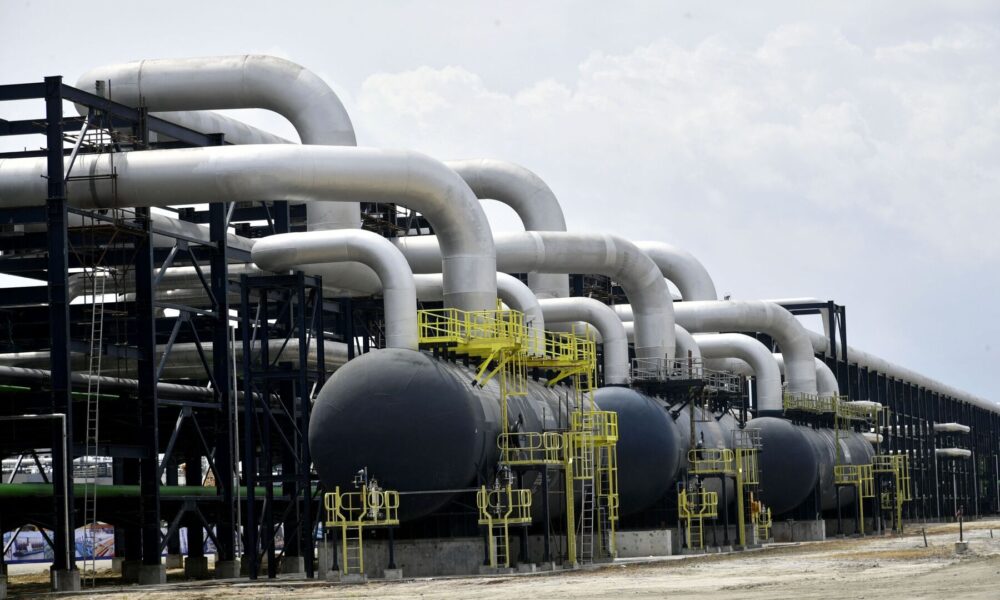Crude Oil
Dangote Mega Refinery in Nigeria Seeks Millions of Barrels of US Crude Amid Output Challenges

The Dangote Mega Refinery, situated near Lagos, Nigeria, is embarking on an ambitious plan to procure millions of barrels of US crude over the next year.
The refinery, established by Aliko Dangote, Africa’s wealthiest individual, has issued a term tender for the purchase of 2 million barrels a month of West Texas Intermediate Midland crude for a duration of 12 months, commencing in July.
This development revealed through a document obtained by Bloomberg, represents a shift in strategy for the refinery, which has opted for US oil imports due to constraints in the availability and reliability of Nigerian crude.
Elitsa Georgieva, Executive Director at Citac, an energy consultancy specializing in the African downstream sector, emphasized the allure of US crude for Dangote’s refinery.
Georgieva highlighted the challenges associated with sourcing Nigerian crude, including insufficient supply, unreliability, and sometimes unavailability.
In contrast, US WTI offers reliability, availability, and competitive pricing, making it an attractive option for Dangote.
Nigeria’s struggles to meet its OPEC+ quota and sustain its crude production capacity have been ongoing for at least a year.
Despite an estimated production capacity of 2.6 million barrels a day, the country only managed to pump about 1.45 million barrels a day of crude and liquids in April.
Factors contributing to this decline include crude theft, aging oil pipelines, low investment, and divestments by oil majors operating in Nigeria.
To address the challenge of local supply for the Dangote refinery, Nigeria’s upstream regulators have proposed new draft rules compelling oil producers to prioritize selling crude to domestic refineries.
This regulatory move aims to ensure sufficient local supply to support the operations of the 650,000 barrel-a-day Dangote refinery.
Operating at about half capacity presently, the Dangote refinery has capitalized on the opportunity to secure cheaper US oil imports to fulfill up to a third of its feedstock requirements.
Since the beginning of the year, the refinery has been receiving monthly shipments of about 2 million barrels of WTI Midland from the United States.